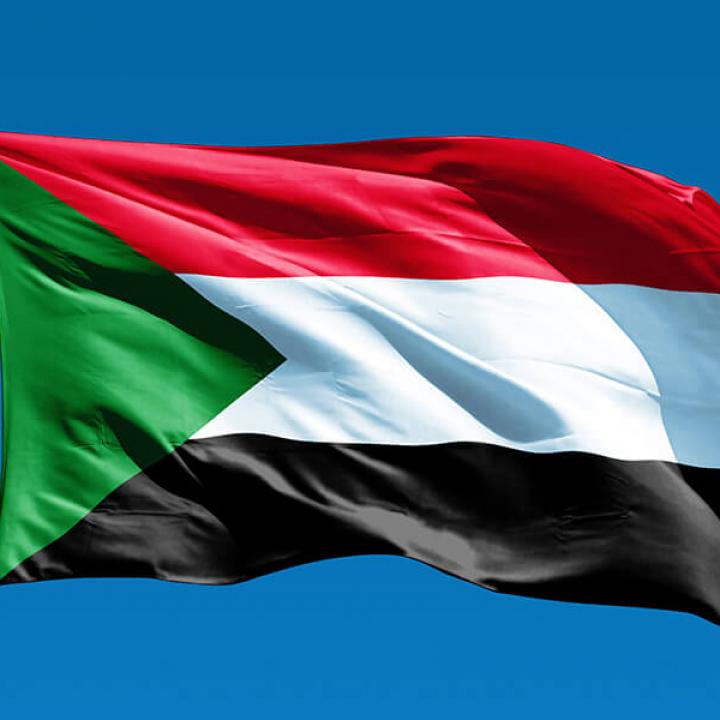
- Policy Analysis
- Fikra Forum
The Jeddah Declaration Is Not Yet a Ceasefire

On May 11, Saudi Arabia and the United States announced that representatives of the Sudanese Armed Forces (SAF) and the Rapid Support Forces (RSF) had signed a Declaration of Commitment to Protect the Civilians of Sudan.
Although the U.S. Department of State’s announcement of the Declaration suggested that future “Jeddah Talks” were being set up to facilitate subsequent negotiations on a long-term cessation of hostilities in conjunction with Sudanese civilians and regional and international partners, the declaration itself made only brief mention of subsequent discussions. Under closer scrutiny, the Declaration of Commitment in fact leaves much to be desired and provides little assurance of follow-through on behalf of either the RSF or the SAF.
What Are the Parties Actually Committing to?
The Declaration consists of seven points aimed at improving Sudan’s humanitarian situation, especially considering that at least eighteen humanitarian aid workers have died since the outbreak of the conflict in April. The points can be summed up as follows:
1. Providing safe passage for civilians fleeing conflict zones.
2. Distinguishing between civilian and military objectives, as well as respecting public and private organizations.
3. Allowing the transit of humanitarian aid, protecting workers, and refraining from intervening in humanitarian operations.
4. Adhering to International Humanitarian Law obligations.
5. Enabling necessary actions to be taken, in collaboration with competent authorities, to bury the dead.
6. Ensuring that lower-ranking soldiers abide by International Humanitarian Law and the Declaration of Commitment.
7. Prioritizing talks to negotiate a short-term cease-fire, and then scheduling talks to end hostilities permanently.
In order to sustain humanitarian assistance, however, the objective was to achieve a 10-day ceasefire, which this Declaration does not do. Instead, the Declaration simply states that the SAF and RSF are “bound by the principles of international humanitarian law” and “reminds” them of their obligations therein. The two parties are already supposed to be bound to these humanitarian laws, and so the Declaration provides nothing new in the way of commitments or assurances.
Even if a temporary ceasefire is achieved in subsequent Jeddah Talks—for which no actual timeline has been given—its sustainability is dubious. On the one hand, both parties have broken ceasefire agreements in the past. On the other hand, the internationally-backed ceasefire monitoring system proposed by the mediators, though comprehensive, lacks value if the the consequences of breaking the ceasefire are not punitive measures.
Where Can We Go From Here?
Beyond generalizations intended to save face, the SAF and RSF have made no tangible commitments to achieving peace or protecting the people on the ground in Sudan. Although U.S. officials believe that the Declaration is only a first step, intended to create momentum, officials also admitted that the two parties are still “quite far apart.” Even after the agreement was signed, the violence continued in Khartoum.
Likewise, concern about the marginalization of pro-democracy forces in Sudan has been expressed by several U.S. legislators. On May 10, Democratic Senator Chris Coons pointed out that "we cannot allow the civilian leadership of the groups that led the brave uprising against Omar al-Bashir to be shoved aside."
The Declaration of Commitment may be a first step, but the next steps must be much more substantive in order to achieve peace for the Sudanese people. Both Adbel Fattah al-Burhan, commander of the SAF, and Mohamed Hamdan Dagalo, commander of the RSF, must be stripped of all credibility by the international community for their roles in the destruction of the country. Having repeatedly failed to punish either commander for their roles in previous human rights violations, including the June 2019 massacre and the October 2021 coup, any subsequent agreements on the political and military future of Sudan must ensure that the generals are unable to use their military positions to gain control during a post-conflict transition.
In addition, the SAF and the RSF ought to be subjected to the same degree of coordinated international punitive sanctions as Russia was after its unprovoked invasion of Ukraine, which effectively cut off Russia from much of the global financial system. The scale of the violence and instability that their careless fighting has inflicted on the Sudanese people warrants such action. Until the parties feel that their financial interests are in jeopardy, they won't be prepared to participate in genuine discussions.


